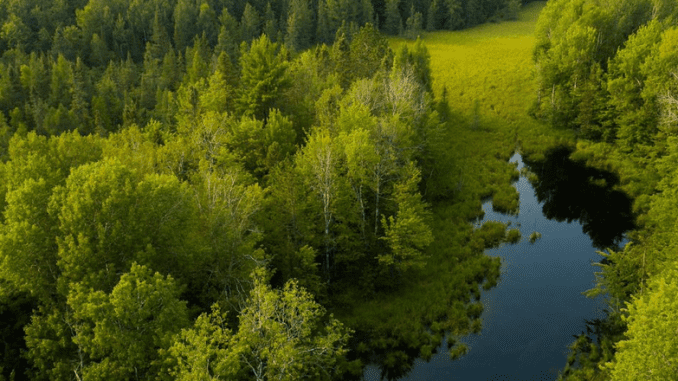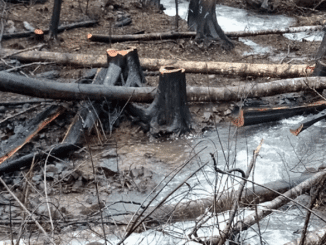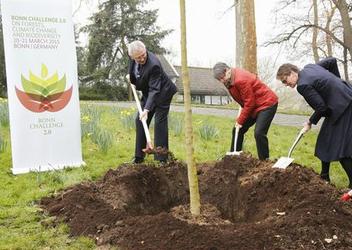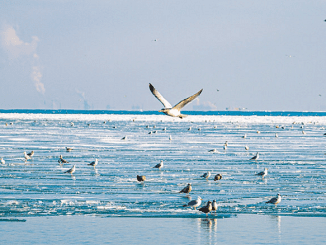
RHINELANDER, Wisconsin, October 21, 2021 (ENS) – The Conservation Fund has purchased 70,000 acres of forested land in central Wisconsin from The Forestland Group to safeguard wildlife habitat and water quality while allowing sustainable timber harvesting, hunting and fishing.
The national nonprofit’s purchase provides time for the development and implementation of permanent conservation easements on the land with the Wisconsin Department of Natural Resources, DNR.
Located an hour north of Wausau in north-central Wisconsin, the property, now called the Pelican River Forest, is the largest privately-owned, unprotected block of forest remaining in Wisconsin.
Featuring 68 miles of streams and 27,000 acres of forested wetlands, the Pelican River Forest straddles the Continental Divide and supports water quality in the upper Great Lakes and Mississippi River watersheds.
The permanent protection of the Pelican River Forest will ensure habitat connectivity between the Chequamegon-Nicolet National Forest and county forests for wolves, black bears and bald eagles, as well as species of conservation concern, such as spruce grouse, northern goshawks, black-backed woodpeckers and red crossbills.
President and CEO of The Conservation Fund Larry Selzer said, “Ensuring the permanent protection and sustainable management of large, existing forests is not only essential to the local communities for jobs and recreational enjoyment, it is also one of the most effective strategies we have right now to combat climate change.”
“Our purchase of Pelican River Forest is the first step in securing the future of this important working landscape so it can continue to provide economic, ecological and climate benefits for generations to come,” Selzer said. The Conservation Fund intends the Pelican River Forest to remain privately owned and on the tax rolls.
Over the last 20 years, The Conservation Fund has worked with private and state partners to protect over 113,000 acres of farms and forests in Wisconsin. The Fund’s latest acquisition was made possible through its Working Forest Fund, “dedicated to mitigating climate change, strengthening rural economies and protecting natural ecosystems through the permanent conservation of at-risk working forests.”
In 2019, the Conservation Fund worked with Goldman Sachs to issue the nation’s first green bond dedicated to conservation in the United States. Capital from the bonds and a loan from the Richard King Mellon Foundation were used in the Pelican River Forest purchase.
Sam Reiman, director of the Richard King Mellon Foundation, said with this loan the charitable organization is implementing its new national habitat conservation strategy. “Wisconsin is blessed with wonderful natural resources, including free flowing rivers, outstanding forestlands, and exceptional wildlife habitat, all of which support local economies and provide opportunities for hunters, anglers and outdoor enthusiasts,” Reiman observed.
President and CEO of the Forestland Group Blake Stansell said, “The long-term conservation of these environmentally sensitive natural forest systems is critically important, and we appreciate our longstanding and successful history of working with the Conservation Fund to achieve this type of favorable result.”
The Conservation Fund and DNR are aiming to protect roughly 12,000 acres of Pelican River Forest under a conservation easement as early as the end of 2021. Once the forests have been placed under conservation easements, The Conservation Fund will seek to sell the encumbered land.
Protection of the remaining forestland of high conservation value will be funded through the Knowles-Nelson Stewardship Program, the U.S. Forest Service’s Forest Legacy Program, supported through the Land and Water Conservation Fund and private philanthropic organizations.
Featured image: The Pelican River runs through The Conservation Fund’s latest purchase, the Pelican River Forest in north-central Wisconsin, 2021 (Photo courtesy The Conservation Fund)



